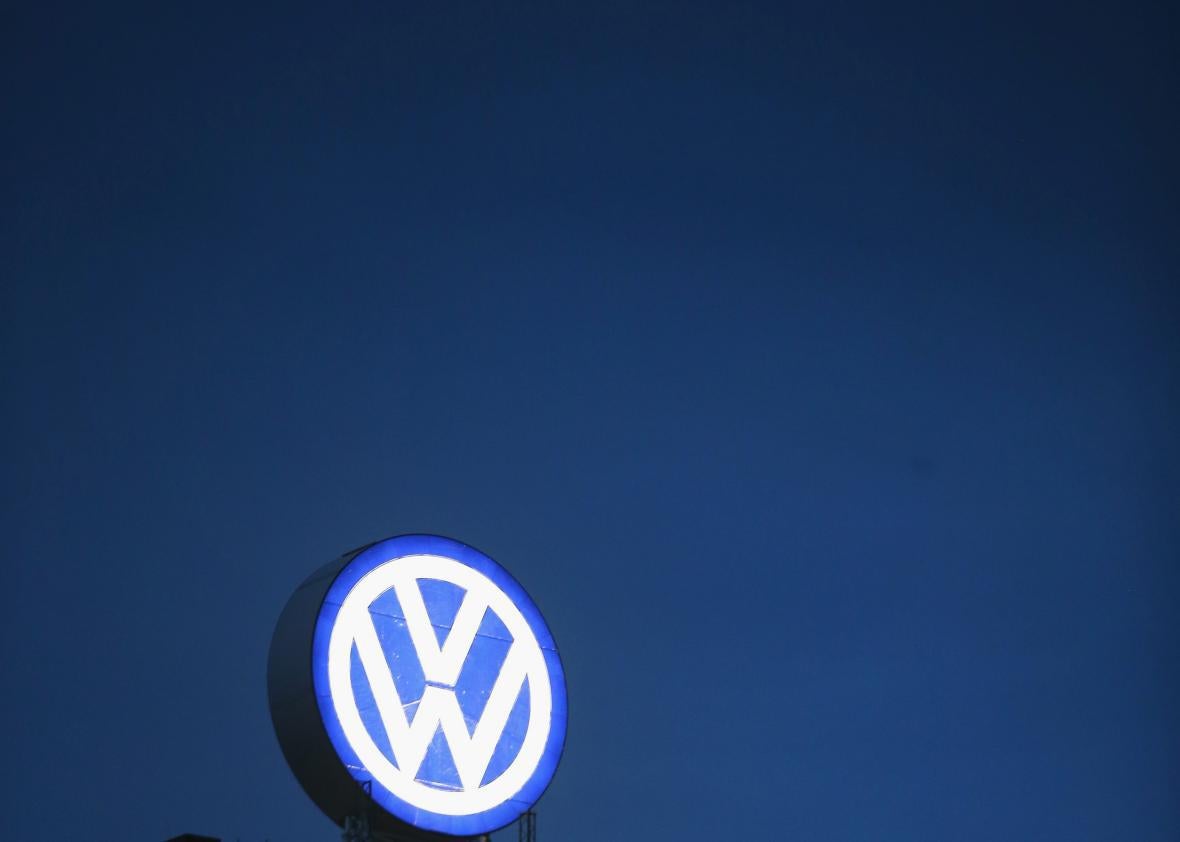Last September, Volkswagen admitted to installing illegal software designed to cheat on emissions tests in 11 million of its cars worldwide. In the U.S., this software allowed certain diesel models to sidestep the Clean Air Act and emit 40 times the legal amount of nitrogen oxide once they were on the road. Last month, VW agreed to pay a record vehicle emissions settlement of about about $15 billion to settle claims in the U.S. and to buy back or fix all affected vehicles by December 2018.
While VW is giving 500,000 American drivers $1,000 each—$500 on a prepaid visa card and $500 in store credits—European drivers aren’t so lucky. The company has admitted that it cheated in the U.S., where emissions regulations are stricter, but, in Europe, VW has stressed that its devices aren’t forbidden under the law; technically, the company has not broken European law. But consider: Only 500,000 cars sold in America were affected by the scandal, whereas about 8.5 million were affected in Europe, so such a payout would be extremely costly to the company. Even though it looks like Europe’s relatively leaky regulatory system will save VW from such a fate, its punishment isn’t nearly finished. The German automaker still faces fines, potential ostracization from buyers, and recalls in certain markets.
The fact that VW is paying hefty fines in the U.S. will likely not help it in its home country. In Germany, VW’s fines could amount to several hundreds of millions of euros. A case was filed against Volkswagen employees involved in the scandal in Braunschweig, Germany, right next to Volkswagen headquarters in Wolfsburg, Germany. A spokesman for the Braunschweig prosecutor’s office has said that they “cannot pay heed to what VW may have to pay in other countries when we go about setting the fine, we cannot say: ‘VW is already requested to pay a lot in the U.S., so let’s not be so strict.’ That’s not possible.” As part of their criminal investigation, prosecutors are probing whether top managers or board members had anything to do with the scandal; if they did, they can fine the company as well. Although prosecutors have not been able to force Volkswagen into concessions like those in the U.S., this administrative probe is one way they may be able to levy sanctions against the firm.
On top of that, VW still faces criminal investigation in the United States, South Korea, and Germany—not to mention the lawsuits coming from investors around the world.
And then there’s the matter of whether its cars will even be allowed to stay on some countries’ roads. On Monday, South Korea’s environmental ministry said that it will decide later in the month whether it is going to revoke the certification for the 32 kinds of vehicles made using the cheating software. At present, 27 of the affected models are on sale in South Korea, and if the country revokes their certification, then those cars will be barred from being sold. As it stands, year-over-year sales for Volkswagen in South Korea slumped 33 percent in the first half of 2016 after the firm admitted to using software to falsify emissions results. Given that the ministry ordered the recall of hundreds of Nissan‘s diesel-powered Qashqai model earlier this year after accusing the company of rigging its own emissions tests, it seems likely that South Korea will do the same to the VW models.
Volkswagen put aside about $18 billion to cover the costs of the scandal, and with each day that amount looks more and more like a lowball.
